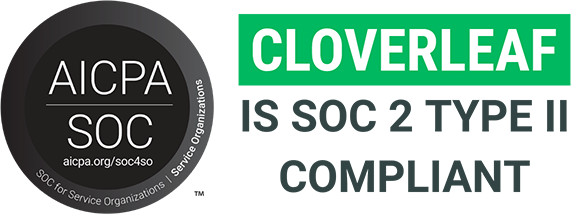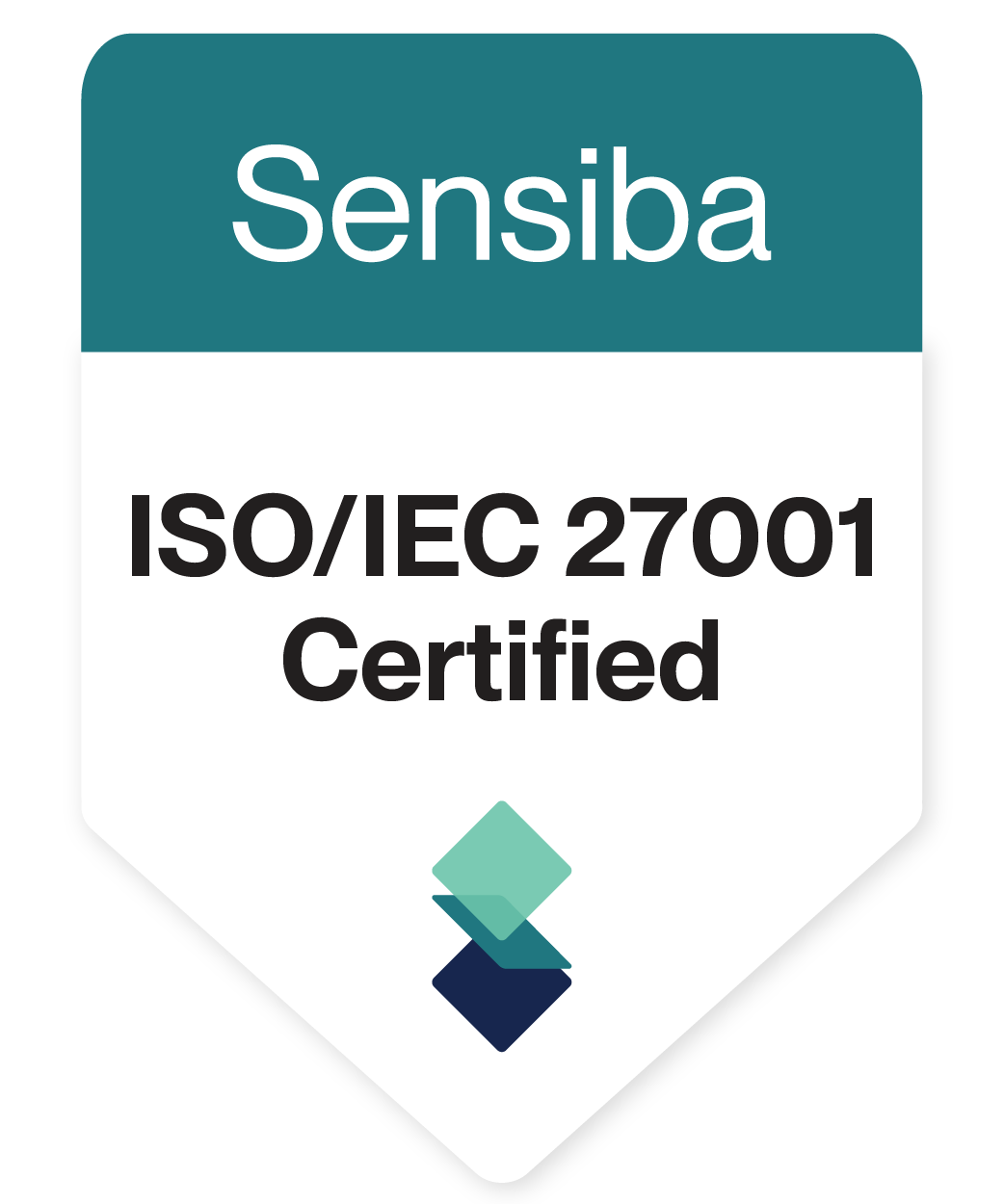Personality tests for employees can reveal insights into unique traits and work styles that can be invaluable for building culture and collaboration. Some critics argue that these tests may oversimplify complex human behavior, lack reliability, and validity, and suffer from self-report bias.They also raise concerns about potential stereotyping, pigeonholing, and limited growth opportunities that might arise from assigning individuals to personality types.
At Cloverleaf, we believe personality tests can be tremendous sources of data and learning that can be used to significantly improve workplace performance. The way organizations use these assessments is evolving; dynamic data usage and continuous refinement make personality tests more actionable and insightful than ever before.Ever since their inception, assessments have been a static, one-time experience. Meaning users complete a list of predefined questions that translate into a final score that lives on in perpetuity… Thanks to automation, asking additional assessment questions over time is becoming feasible. Assessments can be refined as users engage in additional contexts, such as interactions with specific colleagues or while dealing with certain challenges. – Scott Dust, Forbes Council Member
A balanced approach to tests, while considering their limitations, considers the valuable insights into employees’ strengths, motivations, and preferences. Understanding an employee’s personality inventory can help ensure they are in roles that are an ideal job fit. For example, a more introverted person who doesn’t like speaking in public will most likely not get a job that requires them to do so. Having the right personality for the job or organization will result in a better job fit and bring many benefits—including reduced turnover. – peopledynamics.co
By tapping into the power of behavioral and strength assessments, managers and coworkers can develop more understanding about each other, strengthen collaboration, and reduce conflicts. Embracing assessment tools in the workplace can ultimately lead to a more successful organization and unlock your team’s full potential.
Key Takeaways:
-
Assessment tools can provide profound insight to build understanding, strengthen collaboration, reduce conflicts, and unlock team potential for a more successful organization.
-
When selecting assessment tools for employees, leaders must consider relevance, validity, ease of use, and ways to make the insights actionable.
-
Leaders can use personality assessment to identify employees’ strengths, motivations, and preferences to strengthen organizational performance.
-
The basic practice of “treat others how they want to be treated” can help team members to feel heard, seen, and valued.

5 Personality Tests For Employees That Improve Teamwork
Teamwork can make work fun, but to get there, team members truly need to understand each other. Personality tests can bridge the gap that often exists between different personality types. People are complicated, each with their own unique ways of thinking and doing. Think of these assessments as the roadmap to navigating the diverse landscape of your team, highlighting the best paths for collaboration and identifying potential roadblocks.
We’re often asked which personality tests are best for the workplace, and we like to start with these five because of the unique insights each one provides. When combined, these layered insights create a comprehensive understanding of each individual and the dynamics that exist within a team.
The five we recommend starting with are:
16 Types
DISC
Enneagram
CliftonStrengths®
VIA
16 Types (MBTI)
The Myers-Briggs Type Indicator (MBTI) categorizes individuals into 16 distinct personality types based on preferences in four areas: Introversion/Extraversion, Sensing/Intuition, Thinking/Feeling, and Judging/Perceiving. Developed by Isabel Briggs Myers and Katharine Cook Briggs, this assessment draws from Carl Jung’s theory of psychological types. It’s invaluable for understanding how individuals consume information, learn, and reach conclusions.
Learn About The 16-Types Assessment
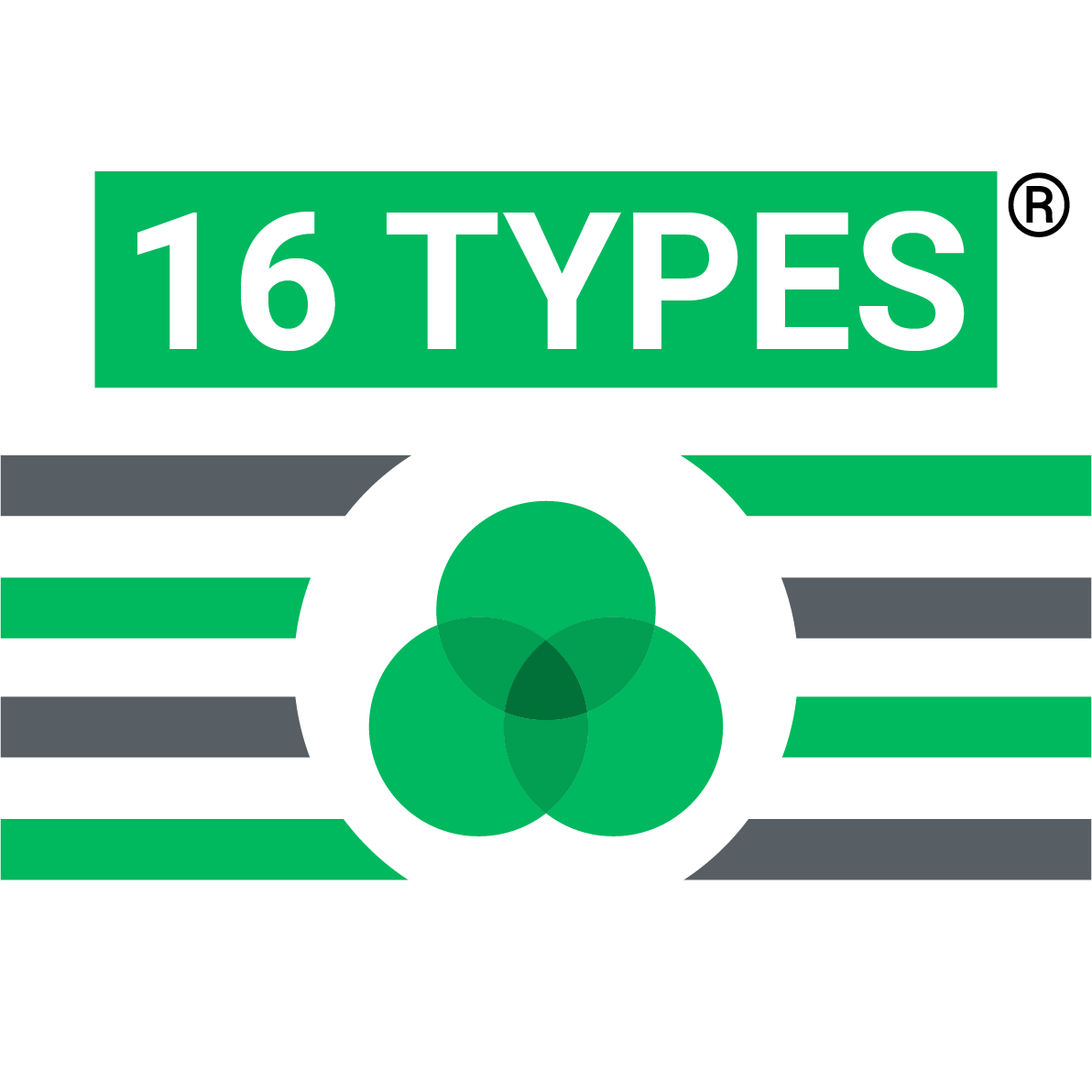
Key Benefits
The MBTI reveals how team members prefer to process information and make decisions. It highlights their mental habits and decision-making engines, offering a deeper understanding of their intrinsic motivations. By recognizing these habits, leaders can create buy-in, minimize miscommunication, and build trust within their teams.
Use Cases
Individual Growth: Helps individuals uncover their unique cognitive preferences, empowering them to understand how they best process information and make decisions. This self-awareness allows them to leverage their strengths, develop more effective strategies for personal growth, and increase their job satisfaction.
Team Dynamics: Enhances team dynamics by revealing the diverse thinking and communication styles within the group. By understanding these differences, teams can reduce friction, foster mutual respect, and collaborate more effectively, leading to a more cohesive and harmonious working environment.
Leadership Development: Enables leaders to tailor their management style to align with each team member’s natural preferences. By adapting their approach, leaders can boost engagement and productivity, creating an environment where everyone feels valued and understood. This empathetic leadership fosters a motivated and high-performing team.
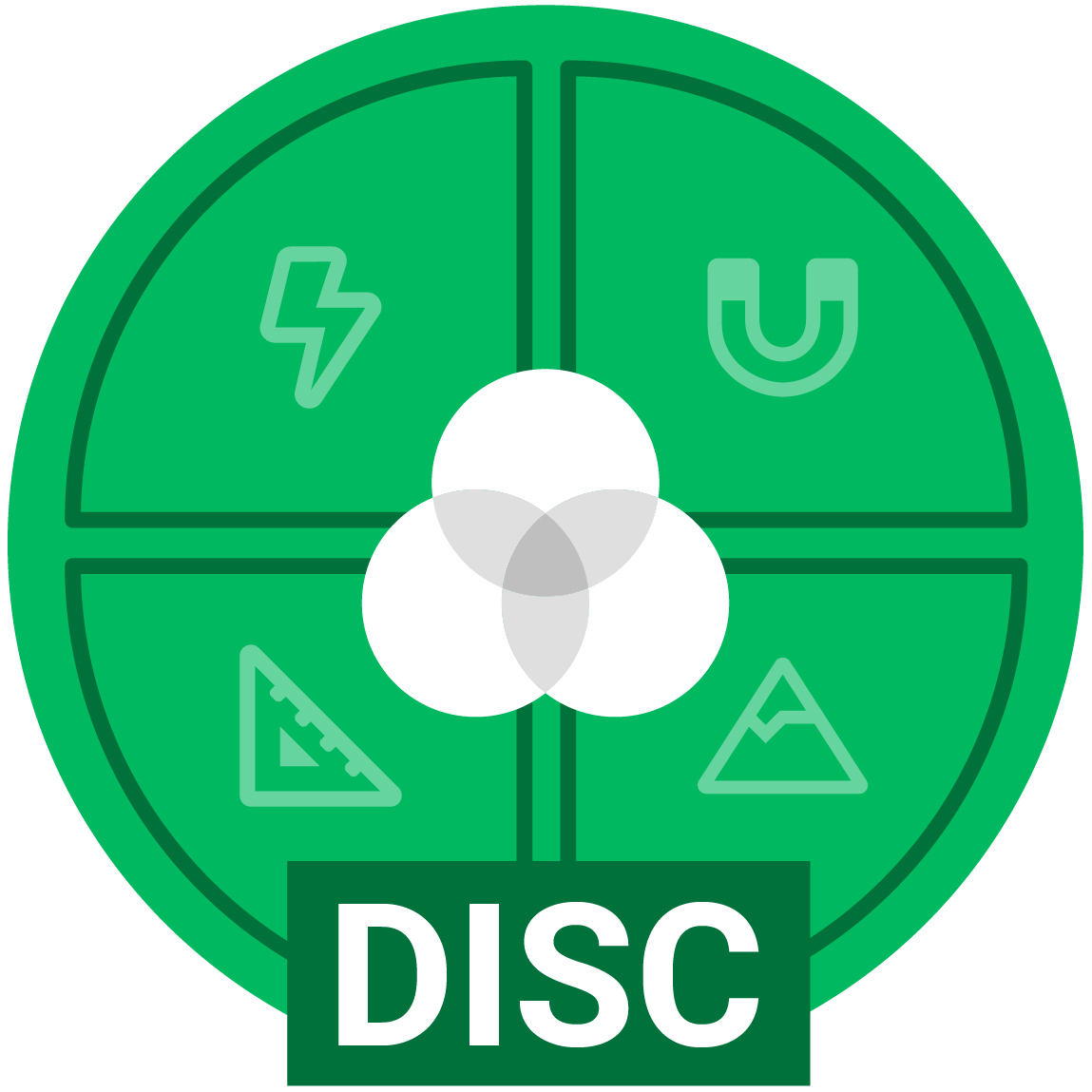
Disc
DISC is a quick and easy-to-remember assessment that measures four traits: Dominance, Influence, Steadiness, and Conscientiousness. By observing your team’s communication styles and level of activity in conversations, you can better understand their needs and motivations. Adjusting your approach based on their DISC profile can improve collaboration and productivity.
Key Benefits
DISC helps teams quickly recognize how each member communicates, responds to challenges, and influences others. By observing these traits, leaders can better grasp the underlying motivations and needs of their team members.
Use Cases
Individual Growth: Provides individuals with insights into their behavioral tendencies, helping them understand how they interact with others and respond to various situations. This awareness allows them to improve their interpersonal skills and adapt their behavior to different contexts, enhancing their overall effectiveness.
Team Dynamics: Improves team communication by identifying the different behavioral styles within the group. By understanding these styles, teams can tailor their interactions to be more effective, reducing misunderstandings and strengthen collaboration.
Leadership Development: Helps leaders manage their teams more effectively by understanding each member’s behavioral style. Leaders can use this insight to tailor their communication and management strategies, ensuring they meet each individual’s needs. This leads to a more engaged and productive team, with members who feel understood and supported.
enneagram
The Enneagram is a versatile assessment that identifies nine distinct personality types, each with unique emotional drives and perspectives. It serves as a lens for understanding socio-emotional motivators, providing deep insights into why individuals behave differently when pursuing the same goals or facing the same challenges.
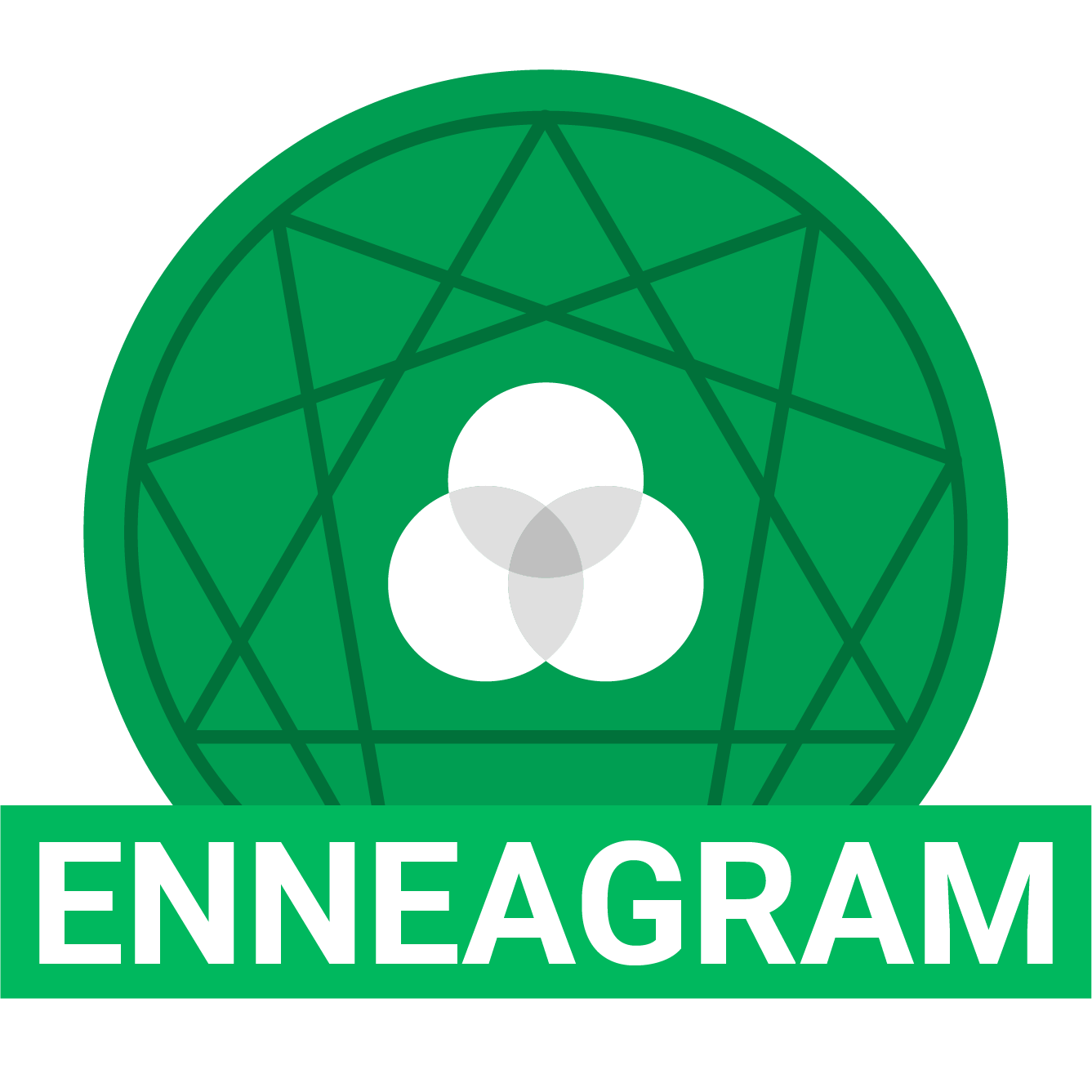
Key Benefits
The Enneagram helps teams understand the core motivations driving each member’s behavior, promoting empathy and reducing conflicts. It reveals why individuals behave differently under similar circumstances and offers valuable insights into group dynamics, decision-making environments, and conflict resolution.
Use Cases
Individual Growth: Provides deep insights into an individual’s core motivations and emotional drivers. This understanding allows individuals to recognize their strengths and areas for growth, fostering greater self-awareness and personal development. It helps them navigate their behaviors and relationships more effectively.
Team Dynamics: Enhances team dynamics by promoting empathy and understanding among team members. By recognizing the different motivations and perspectives within the team, members can better appreciate each other’s contributions and work together more harmoniously.
Leadership Development: Equips leaders with a profound understanding of their team members’ core motivations. This insight allows leaders to address conflicts and challenges with empathy and precision, creating a more harmonious and productive workplace. Leaders can tailor their approach to meet the emotional needs of their team, fostering a more engaged and committed workforce.
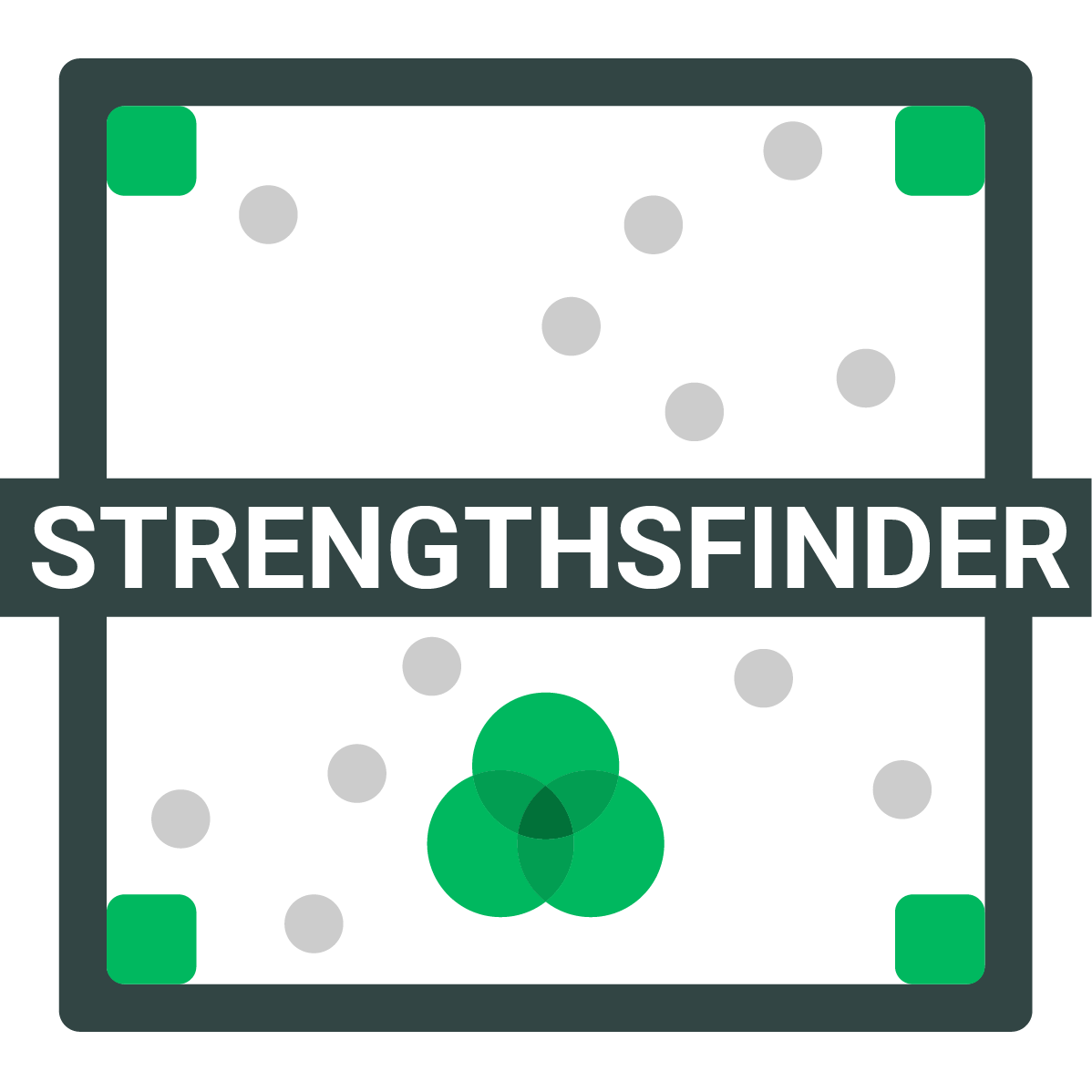
Cliftonstrengths®
Strengths-based assessments, such as CliftonStrengths®, Strengthscope, or VIA, help individuals tap into their innate talents and abilities. Unlike traditional personality assessments, strength-based assessments focus on what people naturally do best, helping them to understand and develop their innate abilities. By leveraging these strengths, individuals can enhance their performance, engagement, and overall satisfaction at work.
Key Benefits
CliftonStrengths® reveals individuals’ natural talents, providing a roadmap for personal and professional growth. It helps employees recognize what energizes them and how to apply their strengths to achieve their goals. Understanding these talents allows for more effective teamwork and leadership.
Use Cases
Individual Growth: Helps individuals identify and develop their innate talents, turning them into strengths. This focus on what they naturally do best can boost their confidence and engagement, leading to higher job satisfaction and personal growth.
Team Dynamics: Enhances team dynamics by helping members understand and appreciate each other’s unique strengths. By leveraging these strengths, teams can collaborate more effectively, fill gaps, and achieve better results.
Leadership Development: Empower leaders to build a strengths-based culture within their teams. By focusing on each team member’s strengths, leaders can enhance engagement and performance, creating a motivated and high-performing team. This approach helps leaders bring out the best in their team, driving success and satisfaction.
via
The VIA (Values in Action) Strengths assessment is a tool that measures an individual’s character strengths, focusing on 24 unique qualities organized under six core virtues: wisdom, courage, humanity, justice, temperance, and transcendence. By identifying these strengths, the VIA assessment helps individuals recognize and utilize their innate qualities to contribute effectively to their personal and professional lives.
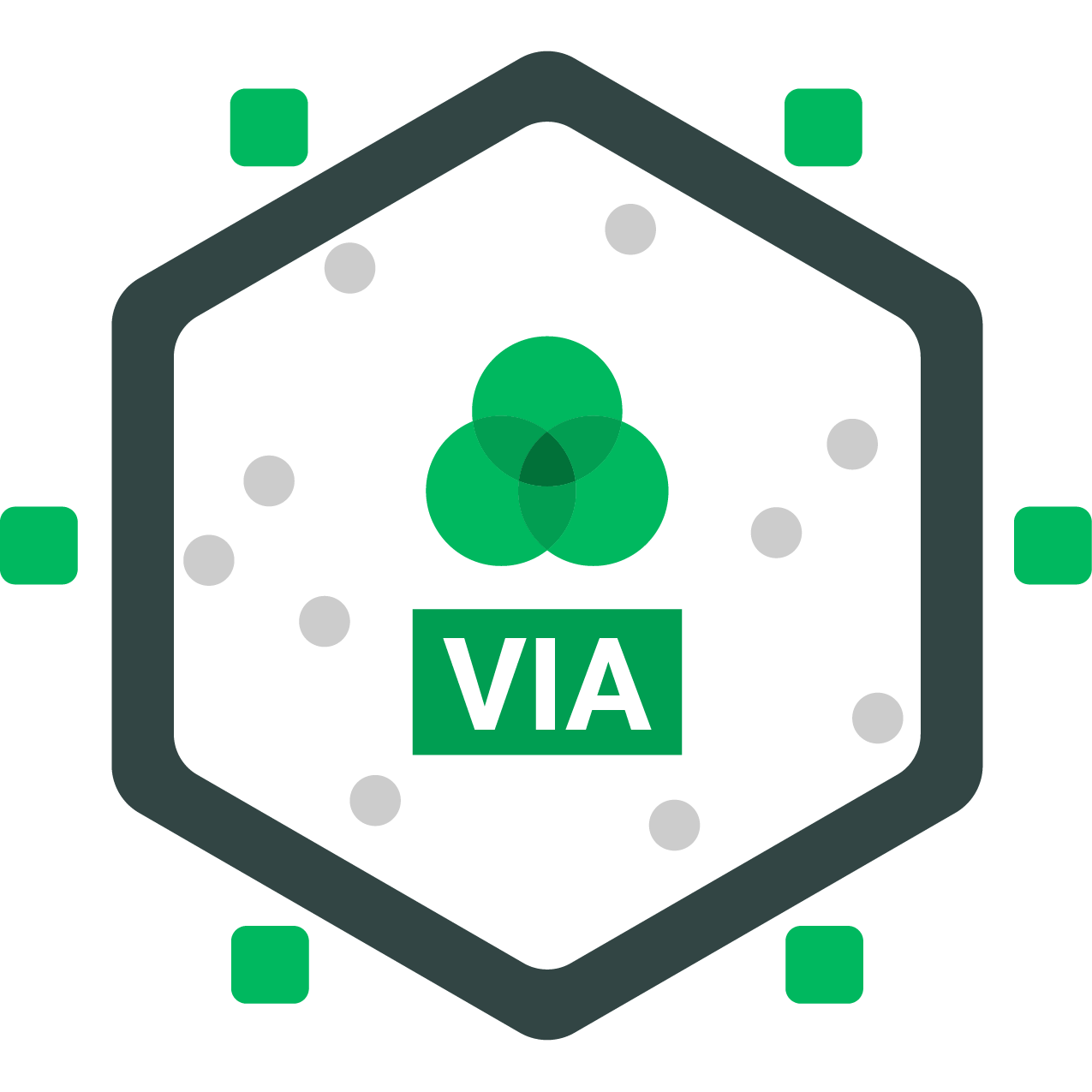
Key Benefits
The VIA assessment enhances personal fulfillment and well-being by helping individuals understand and leverage their core character strengths. This deeper self-awareness not only boosts individual confidence but also promotes a collaborative and supportive team environment where everyone’s unique qualities are valued and utilized.
Use Cases
Individual Growth: Empower individuals by providing deep insights into their core character strengths, such as wisdom, courage, and humanity. This self-awareness can increase confidence and well-being to enable employees to align their actions with their values and achieve greater personal fulfillment. By focusing on their unique strengths, individuals can navigate their career paths more effectively and find greater satisfaction in their roles.
Team Dynamics: When team members recognize and value each other’s unique character strengths, they build stronger, more supportive relationships. This positive environment encourages collaboration and mutual respect, which can improve team performance and support a cohesive working atmosphere.
Leadership Development: Providing leaders with understanding can help them create a healthy culture. By aligning team roles with individual strengths, leaders can boost morale and productivity to build a more engaged and committed team. Leaders can leverage these strengths to address challenges effectively and inspire their teams to achieve common goals.
Overview: Different Personality Assessments Reveal Different Things About Employees
Selecting personality tests for employees is a powerful way to unlock your team’s full potential and create a thriving culture. By understanding each team member’s unique strengths, motivations, and work preferences, you can inspire collaboration, minimize conflicts, and ensure that tasks are assigned in a way that maximizes performance and job satisfaction.
16 Types (MBTI) offer insight into how employees process information, learn, and make decisions. By understanding how an individual’s brain works, managers can effectively assign tasks and optimize workplace dynamics.
DISC Assessment: Focused on observable behavior, DISC identifies distinct work styles, making it invaluable for managers to understand and support their employees. It’s beneficial when time is limited and a quick evaluation is needed.
Enneagram: This assessment delves into the underlying motivations that drive an individual’s behavior. By comprehending these driving forces, managers can tap into their employees’ strengths and provide tailored support, leading to improved performance and job satisfaction.
Strengths Assessments: These identify employees’ unique talents that, when developed, result in exceptional performance. Recognizing and leveraging these strengths can help employees excel with less effort, ultimately benefiting the entire team.
Cloverleaf offers a range of assessments, including free options. We recommend starting with 16 types, DISC, Enneagram, and strengths assessments. These can provide valuable insights into team strengths and opportunities for growth. Click here to start a free trial or take a test.
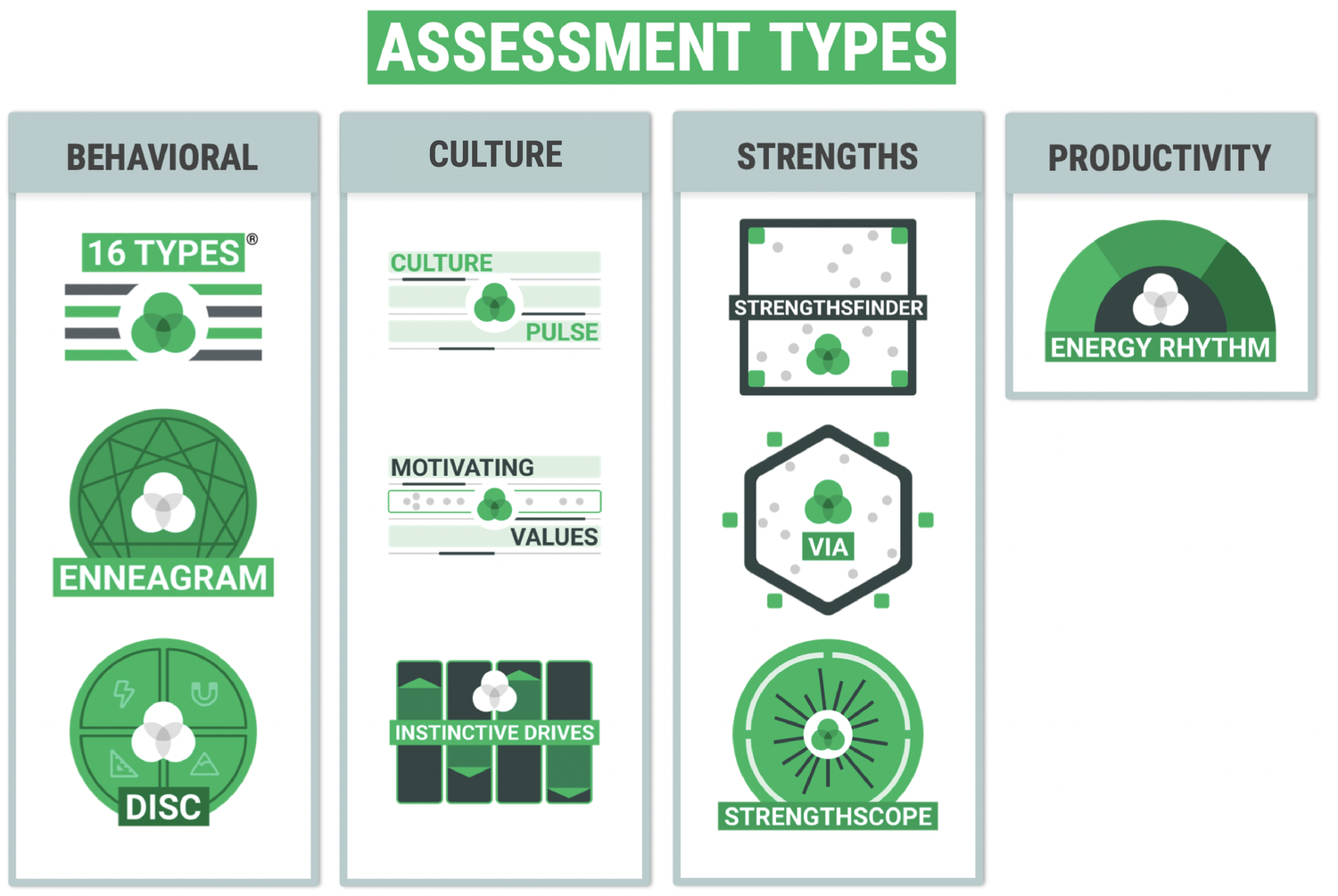
Do Want A Team That understands Each Other?
- Unlock your team's full potential and try Cloverleaf today.
How To Use Behavior Assessments To Coach People At Work
Using personality assessments with employees can provide invaluable insights into individual strengths, communication styles, and areas for growth. Learn how Cloverleaf integrates the insight and learning from behavioral and strengths assessments into your daily workflow to deliver personalized and actionable coaching tips in real-time.
How To Increase The Value Of Your Assessment Strategy With Automated Coaching
-
Relevance to the workplace: Choose assessments focusing on traits directly impacting work performance and collaboration. With Cloverleaf, these insights are integrated into daily workflows, making the relevance even more apparent.
-
Validity and reliability: Opt for tests with strong scientific backing to ensure accurate and consistent results. Cloverleaf uses behavioral and strength-based assessments with reliable data that drive meaningful development.
-
Ease of use and interpretation: A good test should be easy to administer and understand. This helps individuals quickly apply the insights they gain to their everyday work interactions. Cloverleaf’s Automated Coaching™ simplifies this process, offering intuitive dashboards and personalized feedback that helps individuals quickly apply insights to their everyday work interactions.
-
Actionable insights: The best test results provide practical recommendations for improving communication, collaboration, and team performance. With Cloverleaf, these insights don’t just sit in a report—they come to life through ongoing, contextual coaching tips delivered directly within your team’s workflow tools.
Assessments
Validated behavioral and strength-based assessments you’re probably already using.

Insight search
Ask questions about yourself and teammates to get strategies specific to your context.

Coaching Tips
Effortlessly receive timely, actionable coaching nudged into your tools every day.
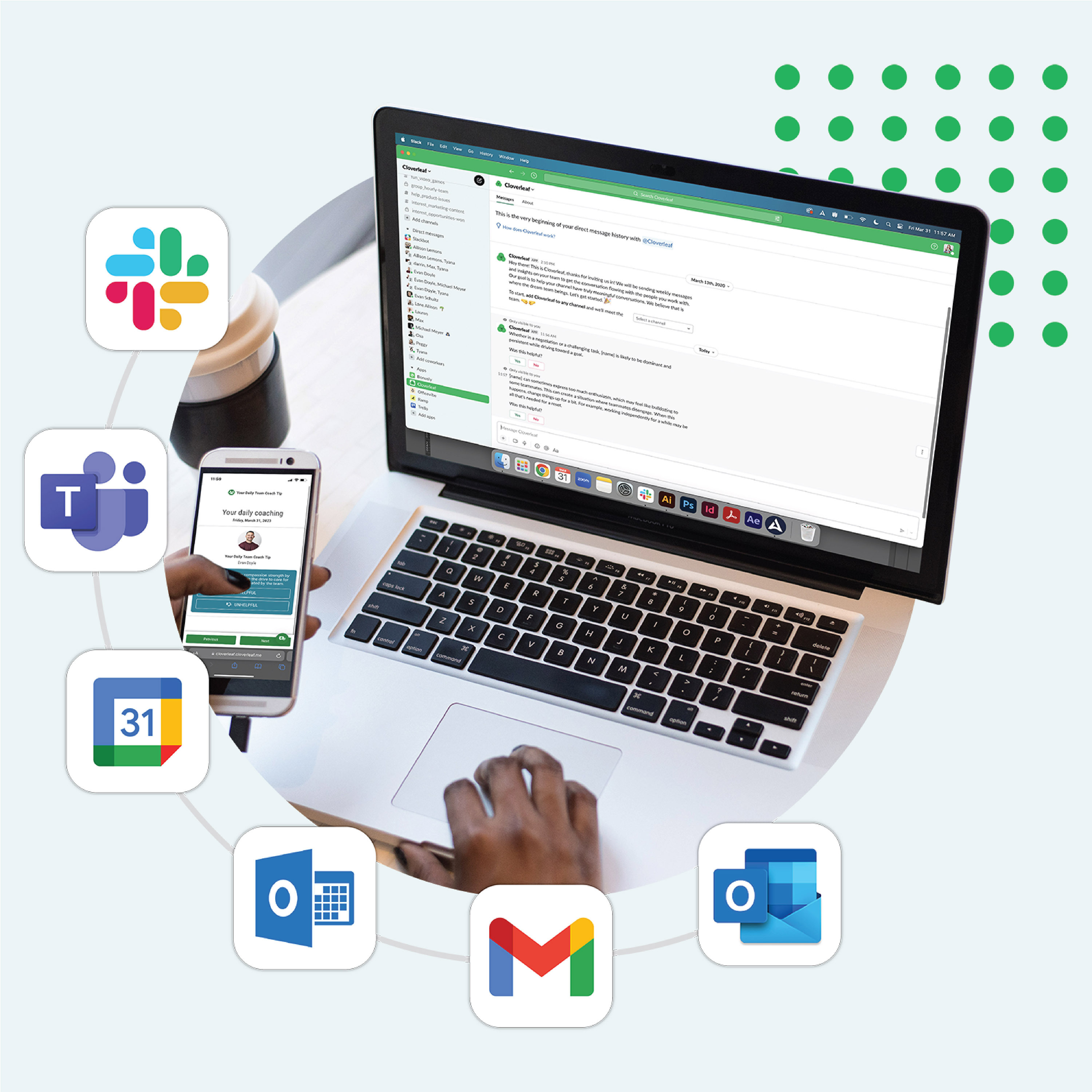
Reflections
Personalized prompts to spark introspection for application and growth.

Side-by-Side Comparisons
Reveal similarities and differences among team members to improve collaboration.
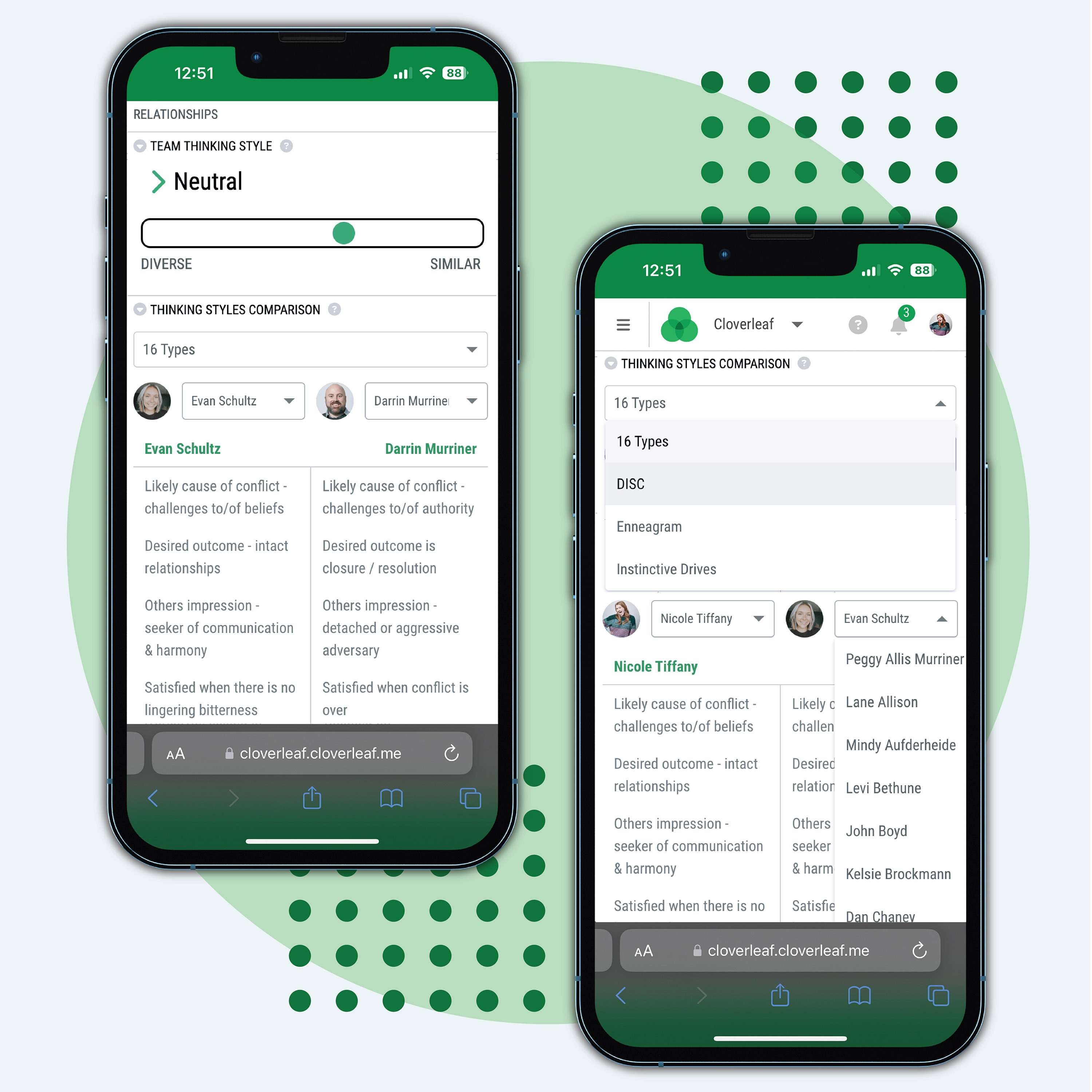
Team Dashboard
A comprehensive view of your team’s behaviors, strengths, and areas to develop.

Why Use Personality Tests Within The Workplace?
The Purpose of Personality Tests For Employees
Ideally, personality tests help organizations provide a common language, improve communication, reduce tension, reveal strengths and weaknesses, and identify growth opportunities. With Cloverleaf’s Automated Coaching™, these benefits are not just theoretical—they become a dynamic part of your team’s everyday interactions.
When employees understand their personality traits and those of their teammates, they can approach each other more effectively. This can transform potentially tense situations into constructive conversations. Cloverleaf brings these insights to life by delivering personalized coaching tips that guide employees on how to interact based on real-time contexts and the people they will interact with that day.
Assessments are tools for personal and professional development. They help individuals understand themselves, manage their behavior, and learn how to adjust their communication style according to their teammates’ preferences. Cloverleaf ensures these insights are continuously reinforced through ongoing coaching, making personal and professional growth a daily practice.
8 Benefits of Personality Assessments in the Workplace
-
Increase Communication: Personality assessments can build self and other awareness. This understanding helps people express their needs more clearly and work more effectively towards shared goals. Improved communication leads to fewer misunderstandings and smoother interactions, creating a more cohesive team environment.
-
Encourage Collaboration: Teams can more easily collaborate by understanding each team member’s unique strengths, motivations, and communication styles. When team members appreciate each other’s contributions, they can work together more effectively, leveraging diverse perspectives to achieve common goals.
-
Personal and professional development: Self-awareness gained from personality assessments can be a catalyst for personal and professional growth. Individuals can identify their strengths and areas for improvement and set goals that align with their natural talents and preferences.
-
Psychological safety: When team members feel understood and can communicate in their most natural state, they experience a higher level of psychological safety. This safe environment encourages open dialogue, innovation, and risk-taking, which are essential for a thriving workplace.
-
Strengthen Trust: Understanding each other’s personalities and motivations helps build stronger relationships and trust within the team. When team members know what drives their colleagues, they can empathize with different perspectives and build a more supportive and cohesive environment.
-
Boost Productivity: Teams can enhance productivity and performance by leveraging each person’s strengths and adapting communication styles to their needs. When individuals work in ways that align with their natural abilities, they are more efficient and effective, driving better results for the organization.
-
Employee Satisfaction: Encouraging individuals to utilize their strengths and align their work with their passions leads to higher job satisfaction and engagement. When employees feel valued for their unique contributions, they are more likely to be motivated and committed to their work, resulting in increased retention and a more positive workplace atmosphere.
-
Team Building: Understanding each person’s motivations and strengths helps create more balanced and effective teams. Managers can assign tasks that align with each member’s skills, recognizing and leveraging individual talents to optimize team performance. This ongoing process ensures that teams remain dynamic and adaptable to changing needs.
Automated Coaching™ ensures your team experiences these benefits to the fullest by turning static assessment data into dynamic, ongoing development tools. Automated Coaching™ integrates personality insights into daily workflows, providing real-time, personalized coaching tips that help individuals and teams continuously grow and adapt. By layering insights from multiple assessments, Cloverleaf offers a comprehensive view of each team member, enhancing communication, collaboration, and productivity. This continuous support ensures that the benefits of personality assessments are not just realized once but are reinforced and expanded over time, creating a more engaged, effective, and satisfied workforce.
It turns out the golden rule of “treat others how you want to be treated” can be taken a step further in the workplace. Instead, strive to “treat others how they want to be treated” to improve communication, strengthen relationships, and increase team effectiveness.
Personality Tests Help You Take The Golden Rule A Step Further
It turns out the golden rule of “treat others how you want to be treated” can be taken a step further in the workplace. Instead, strive to “treat others how they want to be treated” to improve communication, strengthen relationships, and increase team effectiveness.
Understanding your team members and the dynamics of your work environment is crucial for moving from self-awareness to successful collaboration. By recognizing that different situations may require you to adapt your natural tendencies—whether it’s being more urgent in communication, asking more questions, or carefully choosing your words when giving feedback—you can significantly enhance team collaboration.
Making these minor adjustments, where you invest extra energy to adapt to your teammates’ needs or the context of the situation, is part of personal development and self-management. The ultimate goal of providing personality tests for employees is to help them better understand themselves, their team, and their environment and manage their behaviors, expectations, and actions accordingly. This approach ensures the most positive and productive outcomes for both their team and themselves.
Recognizing your unique strengths and choosing to act differently out of kindness, generosity, collaboration, and the desire to achieve more can make you more effective and help you thrive both at work and in your personal life. Personality assessments are powerful tools that provide insight into these strengths and areas for growth, enabling you to make informed decisions and achieve desired outcomes.
Assessments are tools for understanding all your options, enabling you to make the best choices and achieve the desired outcomes. By increasing emotional intelligence, you can unlock your full potential and become a more effective leader, teammate, and individual. Cloverleaf’s Automated Coaching™ enhances these insights, transforming them from static data into dynamic, ongoing development tools. Integrated into your daily workflow, Cloverleaf’s coaching tips and personalized advice help you and your team continuously grow and adapt to become more engaged, collaborative, and high-performing.
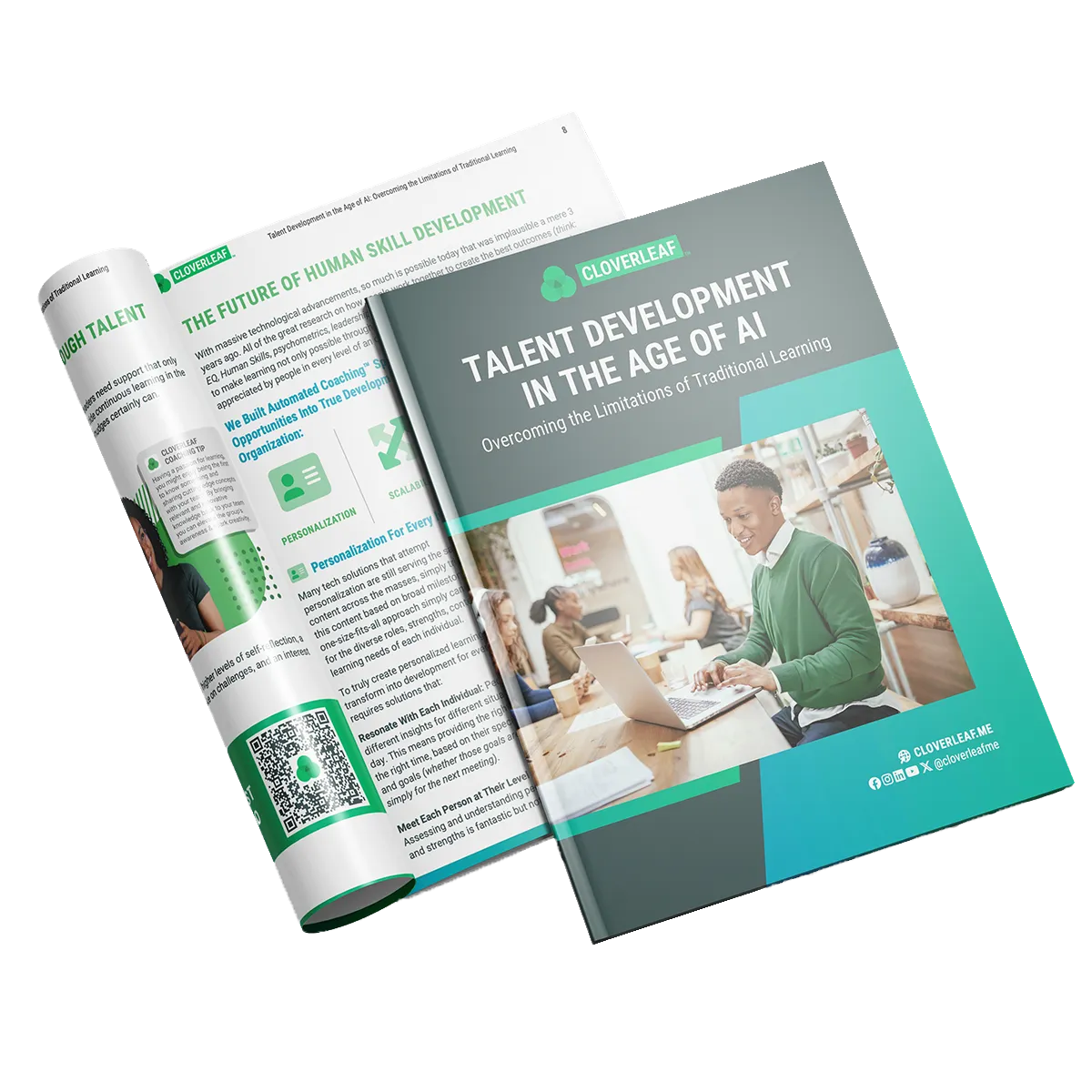
Want To Use Personality Tests To Scale Development?
- Close the gap between learning and on-the-job application
- Personalize growth to individual strengths and needs
- Integrate learning so it is actually in the flow of work
- Develop human skills fast enough to solve business problems
- Prove the ROI of your development programs








